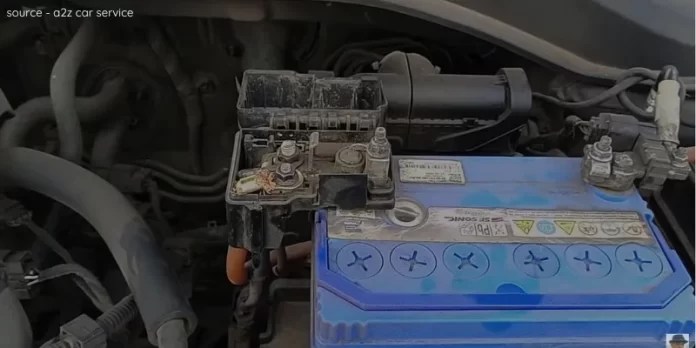Engine sounds are like the heartbeat of a car. They can tell you a lot about the health and performance of your vehicle. But what if you notice that your engine sounds loud when accelerating?
Don’t worry, we’ve got you covered! In this guide, we’ll explore the possible causes of this issue and provide you with some practical solutions to fix it.
Common Causes of Loud Engine Sounds During Acceleration
- Exhaust System Issues: One of the most common culprits behind loud engine sounds is a problem with the exhaust system. A damaged or leaking exhaust manifold, catalytic converter, or muffler can lead to increased noise levels. Check for any visible cracks, holes, or loose connections in these components.
- Worn-out or Incorrect Spark Plugs: Spark plugs play a crucial role in the combustion process. If they’re worn out or not the correct type for your engine, it can result in engine noise. Consider inspecting and replacing the spark plugs according to your vehicle’s manufacturer’s recommendations.
- Faulty Belts: Engine belts, such as the serpentine belt, can cause noise if they’re worn, frayed, or improperly tensioned. A slipping or squealing belt can create a loud sound during acceleration. Inspect the condition of your belts and ensure they’re properly tightened.
- Timing Chain or Timing Belt Issues: The timing chain or timing belt synchronizes the camshaft and crankshaft rotation. If these components are worn or damaged, they can cause engine noise, especially during acceleration. Consult your vehicle’s manual or a qualified mechanic to determine if a timing chain or belt replacement is necessary.
- Engine Overheating: An overheating engine can lead to abnormal noises, including loud sounds during acceleration. Check your coolant levels, radiator, and cooling fan to ensure proper cooling system functionality. If you suspect overheating, address the issue promptly to prevent further damage.
Solutions to Quiet Engine Noise When Accelerating
Now that we’ve identified some possible causes, let’s explore the solutions to fix engine noise during acceleration:
- Inspect and Repair the Exhaust System: If you’ve noticed any damage or leaks in the exhaust system components, it’s essential to address them. Visit a trusted mechanic who can assess the situation and recommend appropriate repairs or replacements. Consider using high-quality components like those from TRQ for reliable performance.
- Replace Worn-out Spark Plugs: Regularly inspect your spark plugs and replace them if necessary. Opt for spark plugs that are compatible with your vehicle’s make and model. Check out our guide on how to replace spark plugs for detailed instructions.
- Adjust or Replace Faulty Belts: If you find any issues with your engine belts, it’s crucial to take action. Tighten or replace worn-out belts to ensure proper functionality and reduce noise. Consult your vehicle’s manual or seek professional assistance for the correct belt adjustment or replacement procedure.
- Address Timing Chain or Belt Problems: If your engine’s timing chain or timing belt is causing loud noise, consult a qualified mechanic for an inspection. They will assess the condition and advise on whether a replacement is necessary. Using quality components like those from Fapo or BFO can enhance your vehicle’s performance.
- Check and Address Engine Cooling Issues: Monitor your engine’s temperature gauge and ensure proper cooling system function. If you notice any signs of overheating, such as coolant leaks or a malfunctioning cooling fan, it’s important to address them promptly. Consult a professional technician who can diagnose and repair the underlying cooling system problem.
Final thoughts
Remember, regular maintenance and timely repairs are key to keeping your engine running smoothly and quietly.
Follow your vehicle’s recommended maintenance schedule and address any issues promptly to prevent further damage.
At Vehicleic.com, we have a wealth of resources and guides to help you maintain and troubleshoot your vehicle.
Check out our informative articles, such as How to Lubricate Shocks and Struts and Struts vs Shocks to expand your automotive knowledge.
So, if you’re tired of that loud engine noise when accelerating, don’t fret.
By following the steps outlined above and seeking professional assistance when needed, you’ll be well on your way to a quieter and smoother driving experience.
Remember, a well-maintained engine not only sounds good but also performs better and lasts longer. Take care of your vehicle, and enjoy the open road with peace of mind!
Stay tuned for more expert automotive advice and tips from Vehicleic.com. Happy driving!



